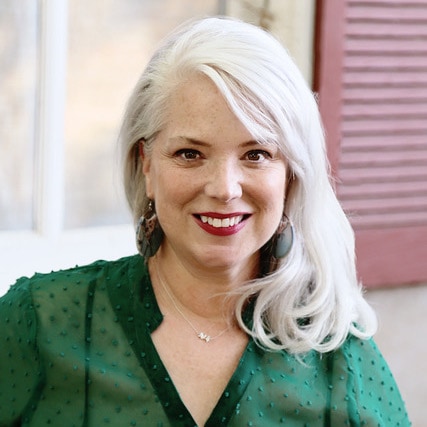The Mothership
Women, Church, and Healing
I have been a reluctant church goer for much of my life.
When I was young, my mother’s standard of church attendance included black patent leather shoes, thick, itchy white tights that inevitably ended up with the heels all wonky on the front of my foot, and, when I got older, a pink communion Bible. She took my sister and me every Sunday, and my dad stayed home until my teen years, insisting his church involved yard work. I kind of saw his point. It must have been lonely for my mom.
As a kid, I had nothing better to do on a Sunday morning, but I just didn’t want to go. I was painfully shy, and Sunday school was terrifying, with its frayed flannel graphs and different teachers every week. I had no friends there, and that feeling of malaise continued all the way until my high school years when I realized church might be a place to possibly find a date. But alas, my only option was a boy named Lance who wouldn’t make eye contact.
My connection with Jesus was fostered in that church. It was a tenuous relationship, built on a somewhat flaky insistence on my part that I’d be all right with my Reader’s Digest understanding of theology. But it was a start.
I finally gave my life to Jesus at age 28. But my views on Sunday mornings didn’t shift much. Grudgingly, I dusted off my communion Bible and found a church again. “Fine, I’ll go, God,” I muttered. “But I won’t like it. And no one will talk to me, probably.” I wasn’t really sure if I actually wanted anyone to talk to me. I figured making friends with Christians would be boring and awkward; they’d just want to do Bible studies all the time.
But Jesus had weirdly changed me, and I began to long for connection, maybe even a Bible study or two. Granted, my spiritual maturity was still at flannel graph level. I thought of church as a sort of pleasant and trustworthy social club where we talked about Jesus.
There were some problems with that.
First of all, I regarded friendship as a way to help me out. Also, friendship meant I didn’t really want to help anyone else out. I was way too messed up for that.
And finally, the majority of my friend-making years in my 20s had been consumed with hunting down Big Romantic Love, thus nixing half of the population and making me a codependent pile of expectations.
So I took my first steps into a church with some basic entry-level abilities with other people. This is tough because I have since learned that churches have very little to do with bricks and concrete and lots more to do with all the very human people inside.
Then I met Debbie. She was in the Stephen Ministry program at church, and she took me on as a weekly appointment. Stephen Ministers are laypeople who have gone through intensive training to provide one-to-one care to people experiencing a difficult time in life, such as grief, divorce, job loss, or chronic or terminal illness. I didn’t have any of that. I was simply broken-hearted from a failed romantic relationship. It wasn’t terminal but it was a big deal to me, and Debbie allowed for that.
When I look back now, I wonder whether Debbie was ever tempted to shout, “Get a grip, Dana!” in the midst of any of those tear-stained appointments. She did not do that. She listened and prayed and offered good, motherly advice that my mother couldn’t because I would never, ever tell Mom any of the details. Debbie was a buoy whom I literally hung onto in those first months of singlehood and new faith, with all my soggy hugs. I needed her.
And she let me do that in all my blubbery glory. She somehow steered me into a place of acceptance and helped me grow up. Debbie was the first of many women in the church who showed me that the hope of Christ is real.
There is nothing like
the friendships I have
with these women.
They are mothers,
and they mothered me.
Many years later I was newly pregnant, and I couldn’t stop panicking about being a parent. Kate, our pastor’s wife, had three boys, yet she seemed so calm. She had a sneaky and searing sense of humor, and she listened to my questions and minor panics about child-rearing with grace. She offered really good advice, but she also admitted that she was clueless too, and that helped even more. I followed her around, watching her every move. I kind of created my own job-shadow internship with Kate. Even so, she seemed to actually like me. She poured out numerous cups of coffee mixed with a whole array of non-dairy creamers. It’s very important to have a variety of flavored creamers on hand. Kate understood that.
And then, as life and parenting cracked me open and kept me that way for a while, I found myself in recovery from alcoholism. After a year sober, in a fit of bravery or nuttiness, I told my church. Enter Ruth.
Ruth is completely in charge of our church. Okay, not literally, but she played the organ for the choir for fourteen years and is now a permanent fixture by our front doors where she greets both newcomers and old friends. She knows her Bible. She says things like, “I’ll be praying,” and she actually means it. When the Bible talks about shining a light, I think it has her footnoted.
When I first decided to talk about my addiction, I felt ashamed, especially around saints like Ruth. Unaware of that, Ruth attended my first-ever speaking gig, aptly called Courage in Recovery. She sat right up front, and I think she even took notes. Later she gave me a hug and asked kind, insightful questions, and I relaxed. I quit being afraid that she would shout “Unclean!” and point at me. Actually, nobody does that sort of thing in our church.
I revel in Ruth’s friendship. She is grace and wisdom and discipleship all in one wonderful, well-dressed package. To this day, she is one of my biggest cheerleaders, and she sends me encouraging handwritten notes every month. Ruth showed me a vision of what God wants for me. She showed me grace. I very much want to be like her when I grow up.
The friendship I have with my husband is deep and important and real, but there is nothing like the friendships I have with these women. They are mothers, and they mothered me. Too often I think we forget that the members of the church who are “just moms” are important spiritual leaders. Ministry can take all forms, and this one showed me how to mother, and minister, myself. We talk and really listen, and then we repeat. We circle up, and out.
Anita is a new friend, which means she has not weathered the test of time of my Dana-ness, and who knows how that will go. Anita is a mom, and she is a creative soul. On more than one occasion, she has ugly-cried in front of me, and I adore her for this. When Anita heads into church, she actually replies honestly when someone asks, “How are you?” Anita will tell you the whole deal. She might also get you giggling so hard you do the snort-laugh, which is an awkward rite of passage for anyone who is to be my friend. Anita is a bit of a loose cannon and she is, for this reason alone, a very crucial part of this mothership. She listens because that’s what we do. She asks lots of good questions. She is vulnerable. And she demonstrates loads of grace—for herself, her kids, her husband, and for all of us moms who wonder how to do this gig without going just a little bit crazy.
I’m going to call my mom today. I do that on Mondays at 10 a.m. every week. We talk about planting tomatoes, what’s for dinner tonight, and how she manages to be married to my dad and stay sane at the same time. We laugh. Today I’m going to ask her, “Did you have any women friends when you were dragging me to church? Did you have someone?” I’ve never asked her how she managed back then.
And then I’ll listen.














